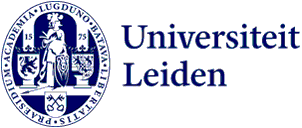
Queen Máxima pays a virtual visit to ‘StudentinzetopSchool’
Students from ‘StudentinzetopSchool’ help schoolchildren and gain valuable teaching experience at the same time. In an online visit on 13 April, Queen Máxima spoke to pupils, students and teaching staff. She also spoke to participants from Leiden. ‘Teaching is wonderful, but it’s complex too.’
An online meeting has become everyday fare for many of us, but what if, from your student room or school library, you suddenly get to talk to Queen Máxima, who is calling in from her lavishly decorated office in the palace. Students from different universities spoke about how it’s been to teach at schools and pupils said whether they thought it had been worthwhile. The queen made it clear that she, as a mother of three children whose schooling is mainly online at the moment, could see how important this support is. She said it can be hard helping your child with physics, say, if you’re not a science person.

Learning delay because of home schooling
Home schooling is causing many pupils to fall behind, and that problem is exacerbated for pupils taking exams this year, said Ralph Meulenbroeks. He is one of the initiators of the national StudentinzetopSchool platform, which matches the demand from schools with the supply of students. Over 1,000 students from eight research universities and universities of applied sciences have already registered. Forty-eight schools have asked for help and the number will probably increase. Meulenbroeks: ‘This is an emergency, and we want to use students to mitigate the negative effects of the coronavirus restrictions.’ There were already various small-scale initiatives, but the platform brings all these projects together and gives them a boost.

More individual attention
Katrien van de Gevel, head of Dalton school in The Hague, said that her pupils enthusiastic. Sem Grootscholten, a Leiden public administration student, is one of the students working at her school. He gives extra lessons in economics and physics, and tutors small groups. Indira Korver is one of his fourth-year pupils. ‘It’s going much better now I’m getting more individual attention,’ said Indira. ‘Because in class the teacher often has to share attention between at least 25 pupils.’ Sem’s method – first letting pupils discuss possible solutions – seems to work. Sem: ‘I try to get them to be one another’s teacher. Because you only understand something if you can explain it.’
ICLON teaching course
The participating universities give their own students a crash course before they set to work. In Leiden this is given by ICLON, the university’s teaching expertise centre. Arthur Pormes from ICLON explained how students quickly learn how to supervise pupils. ‘Teaching is wonderful, but it’s complex too. We use filmed teaching situations to give the students practical advice. They learn how to make a diagnosis like a doctor. What doesn’t the pupil understand? And then it’s important not to give the answer straight away, but first to ask questions so that the pupils develop their own understanding.’

In tune with young people
The queen was keen to hear why the students had signed up as a tutor. Sem: ‘To me it was the perfect opportunity to help pupils, and at the same time I’m learning a lot from this teaching experience. For instance, what it’s like to stand in front of a whole class: all the pupils have to understand what you’re saying, but you also have to keep up the pace.’
It became clear in the discussion that motivating pupils is a big challenge, particularly during the coronavirus pandemic. Students can often strike the right chord because they are more in tune with the youngsters, said Marjolein Gelauff, project leader at Utrecht University. ‘This means they can really inspire the pupils: they’re now starting to enjoy subjects that they once found difficult.’ Dalton head Katrien van de Gevel agreed and said she was looking at whether to use students in more classes.
Teaching as a second career
Máxima also wanted to know about the longer-term ambition of StudentinzetopSchool. Meulenbroeks was keen to emphasise that the platform will also be needed in the post-coronavirus world to get more students interested in teaching and thus address teacher shortages. The queen ended by asking whether the participating students wanted to continue in teaching. Sem said that he would like to work in education at some point, but didn’t want to do teacher training straight after graduation. The queen had a good solution for the ambitious student: he can always change careers and retrain as a teacher.
At Leiden University ICLON is coordinating the deployment of students to secondary schools. Students who are interested can register for teaching training until 16 April. Anyone registering after that date will be put on the waiting list. For more information, please contact Hanny Gijsman.
Text: Linda van Putten
Banner photo: Martin Helleman
